#VolkswagenGroup
Family Feud: Porsche Seeking Millions in Damages From Audi Over Dieselgate Engines
Porsche is apparently seeking 200 million euros — or $234 million — in damages from its Audi stablemate over the costs associated with using its emissions cheating diesel engines. According to reports, Porsche has already issued its claim to Audi and the wheels of justice have been set in motion.
With no verified sources or official word from either automaker, the news is more than just a little strange considering both manufacturers are part of Volkswagen Group. However, Audi did supply both Porsche and Volkswagen with defeat device-equipped 3.0-liter V6s for use in various models. One of those models was Porsche’s Cayenne, and sales of the TDI variant were shelved as the scandal raged.
Electric Cars Are Nice, but Audi Customers Still Demand V8s
Did you hear the news? Every automaker worth its salt will switch to electrified, fully autonomous vehicles yesterday.
Bored yet? Very likely so, but the people laying out money for cars still have a say in what vehicles automakers produce, and for high-end buyers, prestige doesn’t necessarily come wrapped in the latest technology from the pages of Wired. Big-money buyers want big power and, while that increasingly means the latest in twin-turbocharged, downsized wonderengines, it isn’t always so.
Audi can’t wait to challenge Mercedes-Benz, BMW, and Jaguar in the premium electric car race, but there’s no way its customers would agree to the disappearance of a proper eight-cylinder gasoline engine, claims the brand’s technical development chief.
Bugatti Commences the Chiron's Record Breaking Spree
After throwing down the gauntlet earlier this summer, Bugatti has begun making good on its promise to smash every automotive speed record it can with its new Chiron hypercar. In June, Bugatti CEO Wolfgang Durheimer told the press that the successor to the brand’s Veyron Super Sport would embark on a 12-month mission to ensure dominance, but admitted he wasn’t entirely sure how much quicker the Chiron would actually be.
However, helped out by silicon carbide brakes with titanium pistons, it turned out to be fast enough to go from a dead stop to 249 mph — and back to zero again — in a staggeringly short 41.96 seconds. Considering that there aren’t many cars that can even go that fast, the record-winning run does feel like a bit of a cheat. The feat is undoubtedly impressive but, since the Chiron has so few contemporaries, the record almost seems engineered to ensure Bugatti a victory.
Former Lamborghini Boss Stephan Winkelmann Leaving Audi Sport to Run Bugatti in 2018
According to a report in Autocar, the rise through Volkswagen Group ranks accomplished by Audi Sport CEO Stephan Winkelmann will continue in 2018.
Formerly a Fiat employee, the 52-year-old Winkelmann became famous in the auto industry during his decade-long run as president and CEO of Lamborghini. Winkelmann then took over at Audi’s Quattro performance division in March 2016 before changing its name to Audi Sport. But the Rome native’s tenure at Audi Sport will reportedly be cut short by Volkswagen Group’s need to fill the lead position at its flagship brand, Bugatti.
If Autocar’s sources are right, look for Winkelmann to take over at Bentley in 2019, as well. Makes you wonder: Winkelmann has climbed from Fiat to Lamborghini to Audi Sport to Bugatti and Bentley. What’s next?
Report to the Bridge: Audi AG Sees an Upper Ranks Shakeup
Audi announced a rather high-level reorganization of management on Monday as it continues grappling with life after Volkswagen Group’s diesel-emissions scandal.
The automaker is still on the receiving end of numerous criminal investigations and vehicle recalls, as well as criticism from unions. But four of its board members aren’t coming along for the ride. Audi AG is replacing CFO Axel Strotbek, production chief Hubert Waltl, human resources head Thomas Sigi and sales chief Dietmar Voggenreiter, effective at the end of this month.
Volkswagen Won't Sell Assets to Cough Up Dieselgate Capital, Blames Union Leaders
Financial analysts and industry experts have been expecting Volkswagen to begin selling assets to help cope with the cost of its diesel emissions cheating scandal. The penalty for its deception may have already reached $24.2 billion, and German lawsuits could tack on another $8 billion.
However, Europe’s largest automaker says it’s not interested in selling off properties to recoup losses associated with the scandal. It has another plan to rake in the cash.
Germany Forced to Appear Proactive as Anti-diesel Prejudice Swells in Europe
With Paris, Madrid, Athens, and Mexico City all pledging to ban diesel vehicles from entry within the next few years, the fuel’s future doesn’t look particularly bright. While citywide bans like these are becoming increasingly popular in Europe, diesel vehicles still account for almost half of the continent’s registered vehicles.
Germany, which has been speedily moving away from the fuel since Volkswagen’s emissions fiasco, provided more than its fair share of those diesel-powered models. It’s been mulling over how to handle it’s own regulatory matters pertaining to the fuel and the rest of the European Union’s intense pressure doesn’t seem to have fazed it.
Instead of enacting the same transportation ban on diesel vehicles as seen in Paris, Germany has decided to furnish its automakers with the opportunity to clean up their act. Industry officials and politicians have agreed to implement software updates on existing vehicles specifically to keep them eligible for operation within major metropolitan areas. Considering Mercedes-Benz just offered to “voluntarily” recall 3 million Euro-spec cars fitted with diesel engines, that’s incredibly good timing. Likewise, Volkswagen Group claims it will update 850,000 Porsche and Audi vehicles equipped with larger diesel motors.
Pending Battery Armageddon Ready to Doom Future EV Production
Practically every major manufacturer is touting electric cars as the future of automobiles. There’s good reason to believe them.
With few exceptions, automakers are aggressively pushing toward battery driven vehicles to meet ever more stringent regulatory demands. Several brands plan on fleet-wide electrification within a few years and a handful already snub internal combustion engines entirely. But there may be a massive problem on the horizon ready to handicap the greener future many of us were prepared to embrace.
Volkswagen, a company that has been promoting its own electric revolution in the wake of its diesel emission fiasco, is anticipating a serious lithium-ion battery shortage by 2025. Based on targets of achieving 25 percent of Volkswagen’s total volume from electric vehicles in 10 years, Ulrich Eichhorn, VW’s head of research and development, dramatically increased projections made 13 months ago.
Previous estimates from the company had the number set at 150 gigawatt-hours of electricity.
“We will need more than 200 gigawatt-hours,” Eichhorn stated on June 30th during a presentation at Volkswagen’s proving grounds north of Wolfsburg.
VW Bosses Told Full Emissions Costs Months Before Coming Clean: Report
Throughout the entirety of Volkswagen’s diesel emission scandal, the automaker has changed its tune on several occasions. After evading scrutiny from regulators for years, it finally admitted to installing illegal defeat devices designed to fool U.S. emission testing in late 2015. However, it assured the public that no high-ranking executive had complete knowledge of the misdeed until news of the scandal broke to outraged consumers.
Obviously, that was a lie. But no damning evidence came out indicating anyone above mid-level management had prior knowledge of the devices or any idea they would be so harmful to the company. But now a Volkswagen manager arrested earlier this year claims the automaker’s former chief executive and other top managers had been told the carmaker’s diesel emissions violations could cost up to $18.5 billion, well before the September 2015 announcement.
When is a Delivery Not a Delivery? When It Involves a French Volkswagen
There’s nothing like the antics automakers get up to when fierce rivalry or falling sales forces an emergency pressing of the desperation button. Just last year, Fiat Chrysler Automobiles found itself in quite a bit of hot water after its long-running sales-recording practices came under the federal microscope. Mounting pressure eventually forced the company to dial back its monthly figures, shattering some advertisement-friendly sales streaks.
Across the pond, Volkswagen now finds itself with egg (quiche?) on its face following a report by its internal auditors. According to German publication Der Spiegel, the automaker plumped up its French sales tallies for years — to the tune of at least 800,000 vehicles.
The details of this latest case of sales fudging, which apparently went undiscovered for seven years, seem particularly brazen.
German Prosecutors Look Into Porsche, Bosch Over Diesel Emissions
While the United States concluded its investigation into Volkswagen Group’s diesel emissions scandal months ago, the wheels of justice turn appear to turn more slowly in Germany.
Prosecutors in Stuttgart have launched a preliminary investigation into employees at Porsche to assess whether they were involved in designing any of the company’s emissions-cheating software. Porsche is the latest addition in a governmental probe against Volkswagen Group. German prosecutors have already launched a formal investigation against the core brand and Audi.
Prosecutor Jan Holzner explained on Thursday, however, that the Porsche inquiry was not yet a formal investigation. The same could not be said of managers at Bosch, who Holzner believes may have had a role in aiding and abetting Volkwagen’s emissions fraud.
VW Reduces Venerable Management Staff to Bleed the Young
Volkswagen Group is continuing to clean house and has made plans to eliminate a significant number of its management staff using the same “early retirement” tactics offered to its longstanding labor force. It’s another obvious attempt on VW’s part to remake itself into a younger, forward-thinking automaker following the diesel emissions scandal — and save itself some money in the process.
While the layoffs aren’t explicitly targeted at Germany, the majority of outgoing managers will certainly come from its European workforce. Volkswagen has declined to comment on the exact number of hangers-on potentially affected by the plan.
Black Sheep Ferdinand Pich Reappears as Porsche SE Attempts to Ease Tensions
Porsche Automobil Holding SE has denied it intentionally misled investors over the severity of the VW emissions cheating crisis in 2015. With Volkswagen AG’s Chief Executive Officer Matthias Müller now personally caught up in the growing market manipulation investigation, it was only a matter of time before Porsche Automobil Holding released a statement to assure investors the board had done its job appropriately.
Müller’s joining of former VW CEO Martin Winterkorn, supervisory board chair Hans Dieter Poetsch, and board member Herbert Diess as the focus of government probes has made the situation appear fishier than a trawler’s top deck. However, at this week’s annual shareholders meeting, Poetsch said he is convinced none of the board members are guilty of any wrongdoing — presumably, he included himself in the statement.
“We perceive all legal claims against Porsche SE relating to the diesel issue as unfounded,” he explained.
Volkswagen Accused of Unfair Labor Practices at Tennessee Plant
The National Labor Relations Board has again accused Volkswagen of unfair labor practices, stating the automaker increased health insurance premiums and altered working hours of employees who voted for union representation at its Chattanooga, Tennessee factory.
The facility — VW’s only U.S. assembly plant — produces the Passat and new Atlas SUV. A small portion of skilled-trade employees voted in 2015 to be represented by the United Auto Workers, but VW is claiming they shouldn’t speak for the entire workforce.
However, the NLRB says the UAW’s collective-bargaining rights for the select workers who maintain the plant’s automated machinery can’t be superseded by the federal appeals court case.
“Wages, hours, and other terms and conditions of employment of the Unit … are mandatory subjects for the purposes of collective bargaining,” reads the complaint.
Volkswagen's To-do List: Biggest Product Push in History, Huge(ly Optimistic) Productivity Gains
Volkswagen Group’s core brand has targeted an end to profit losses in the North America by the end of the decade, setting its break-even point for 2020. Central themes of the plan are dependent on cost cutting measures and higher-margin SUV models it believes will bring it back from emissions scandal purgatory. In its most recent announcement, VW continued to tout electric vehicles as an inevitable key focus by 2025, but hasn’t lifted the veil on all that entails.
In the short term, however, Volkswagen is promising the “biggest product offensive in its history,” with ten new models coming this year alone. In actuality the number is half that, as five of those vehicles are updated versions of existing models. The real number could be even smaller if VW is counting the Atlas/Teramont as separate vehicles; the same goes for the two wheelbases of the Tiguan. And, based on the information it provided us, that does appear to be the case.



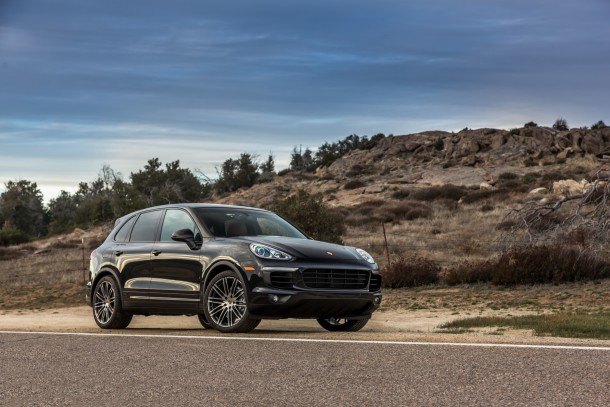

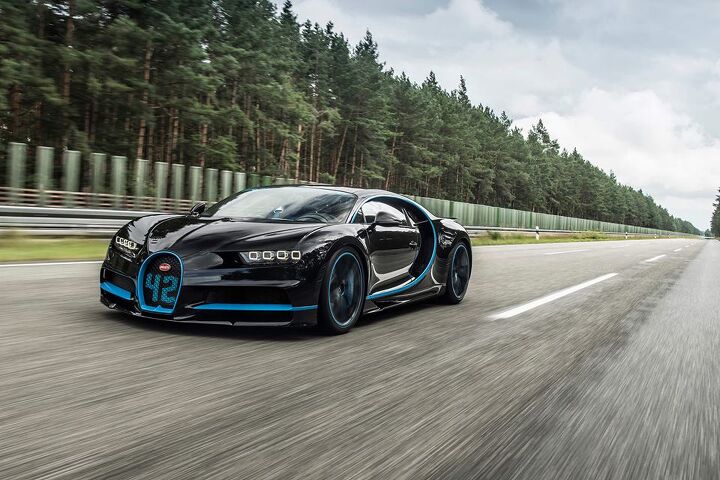
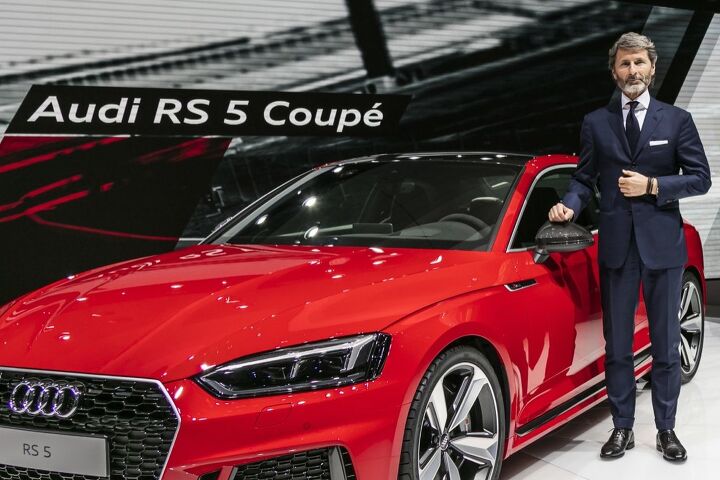

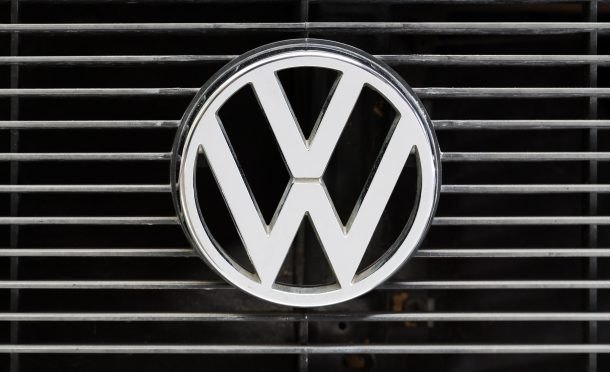

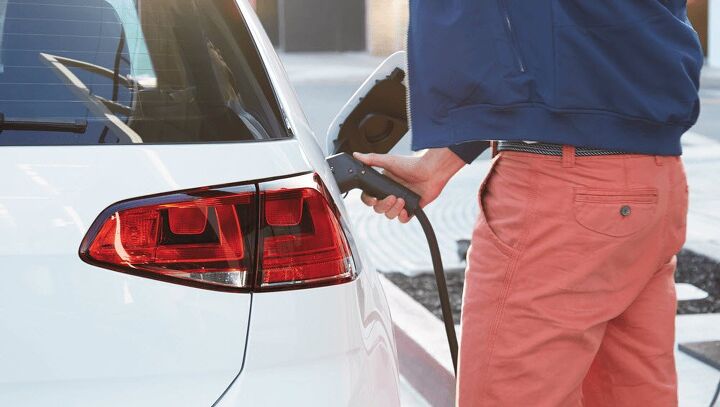
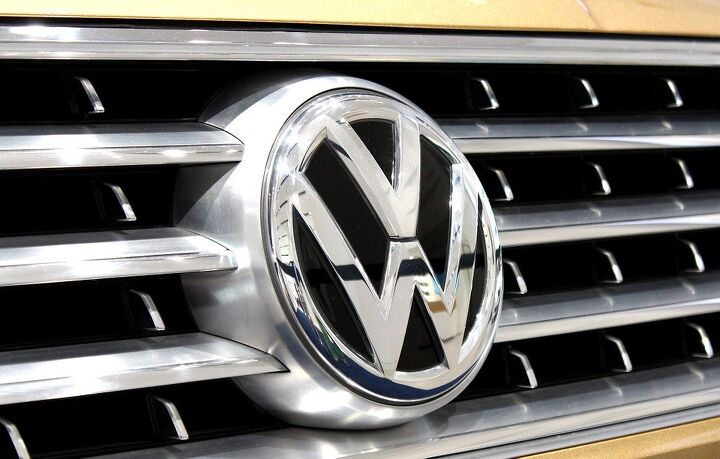
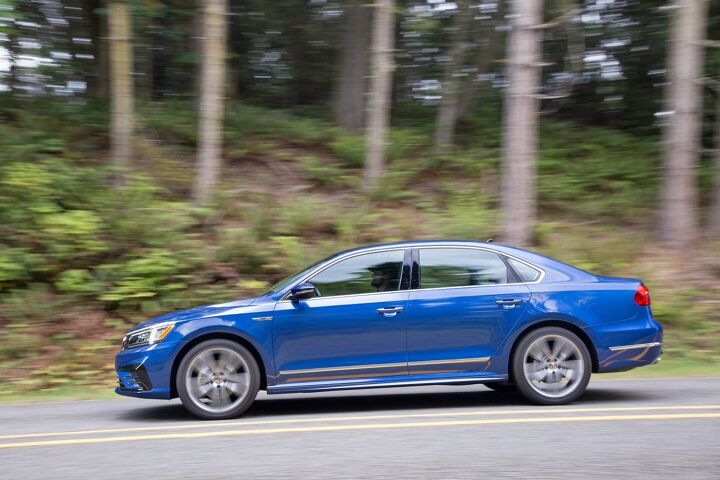
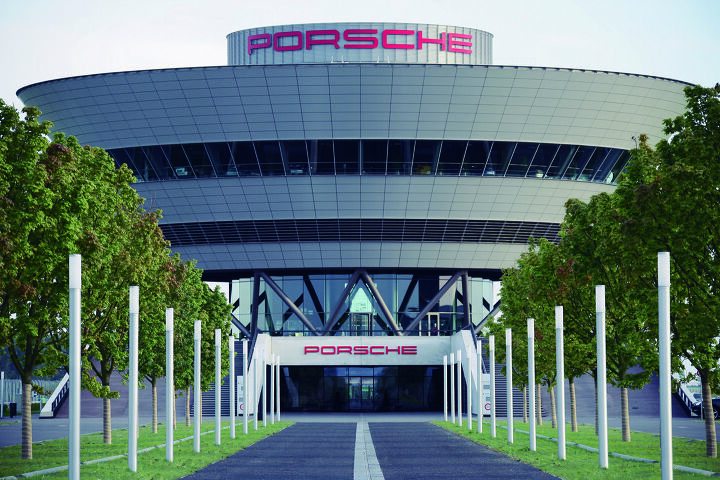
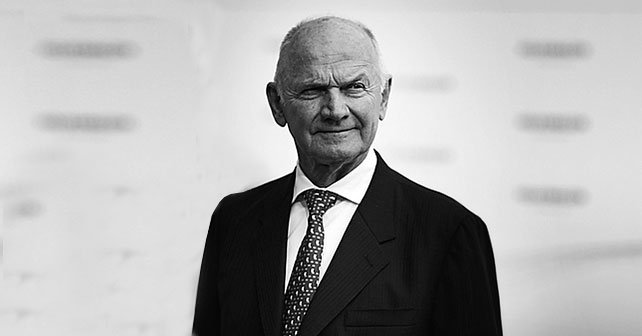

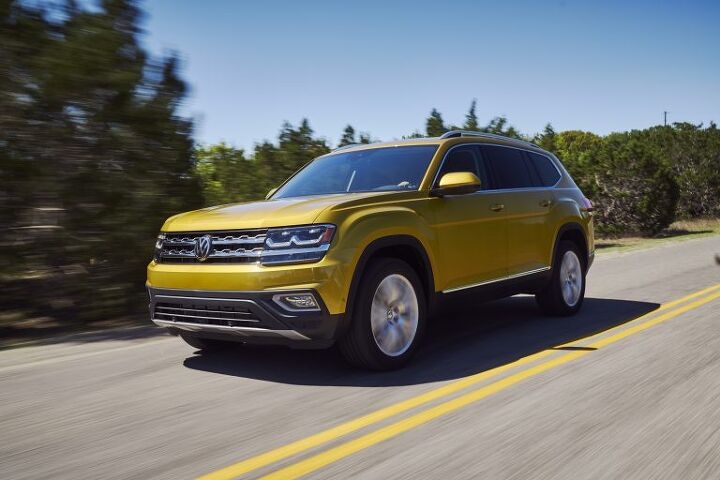












Recent Comments